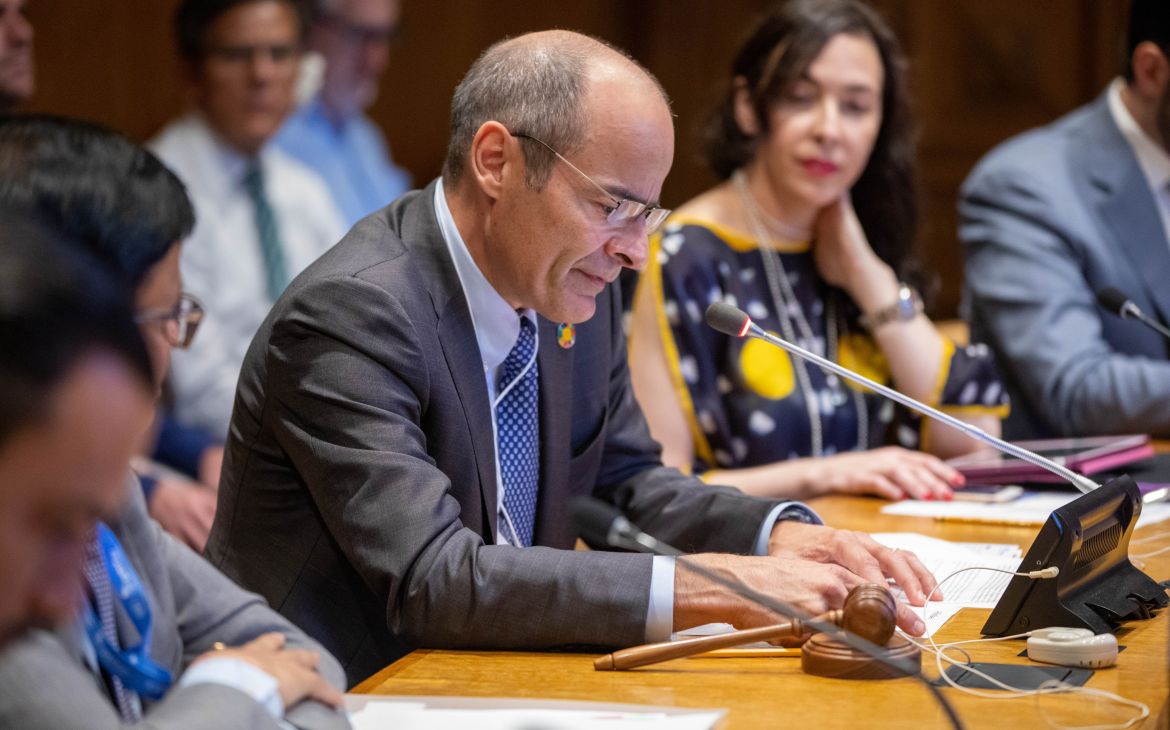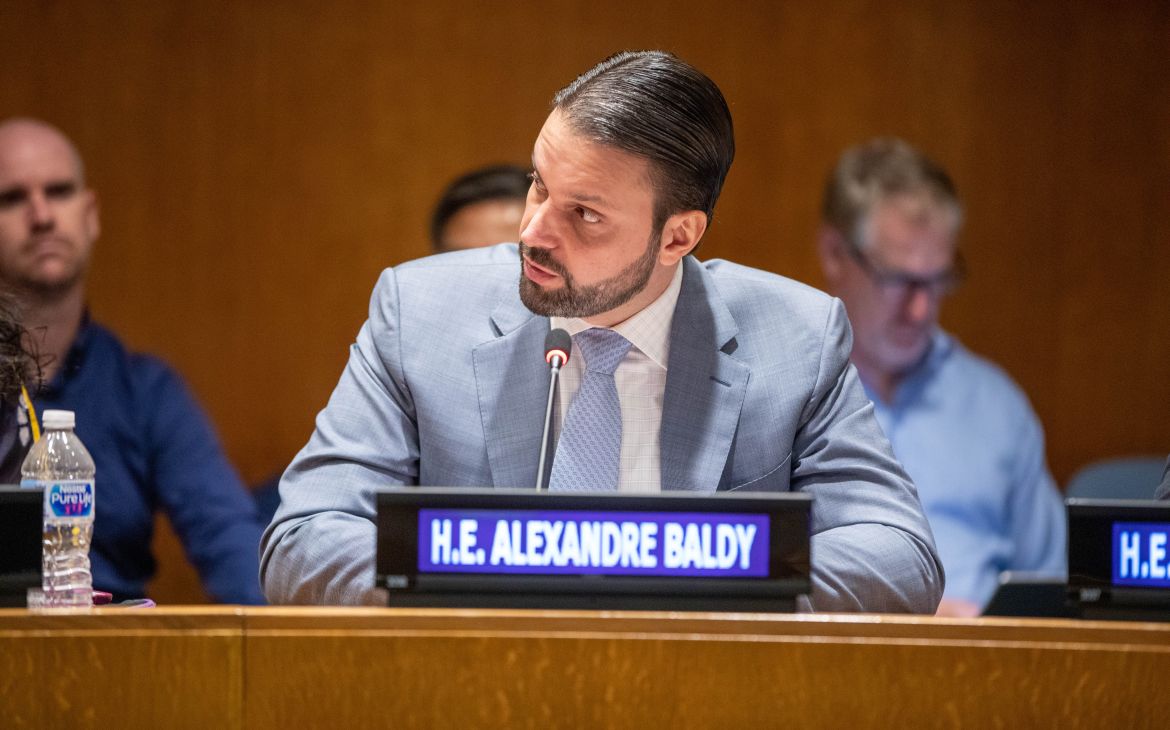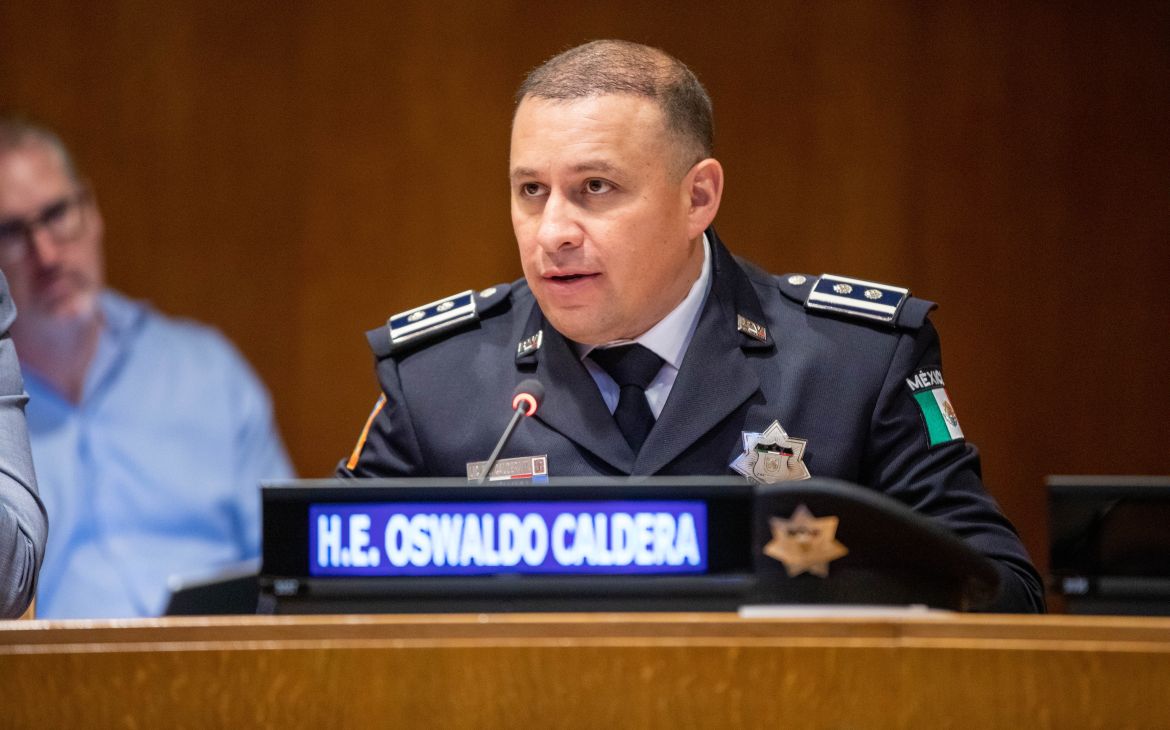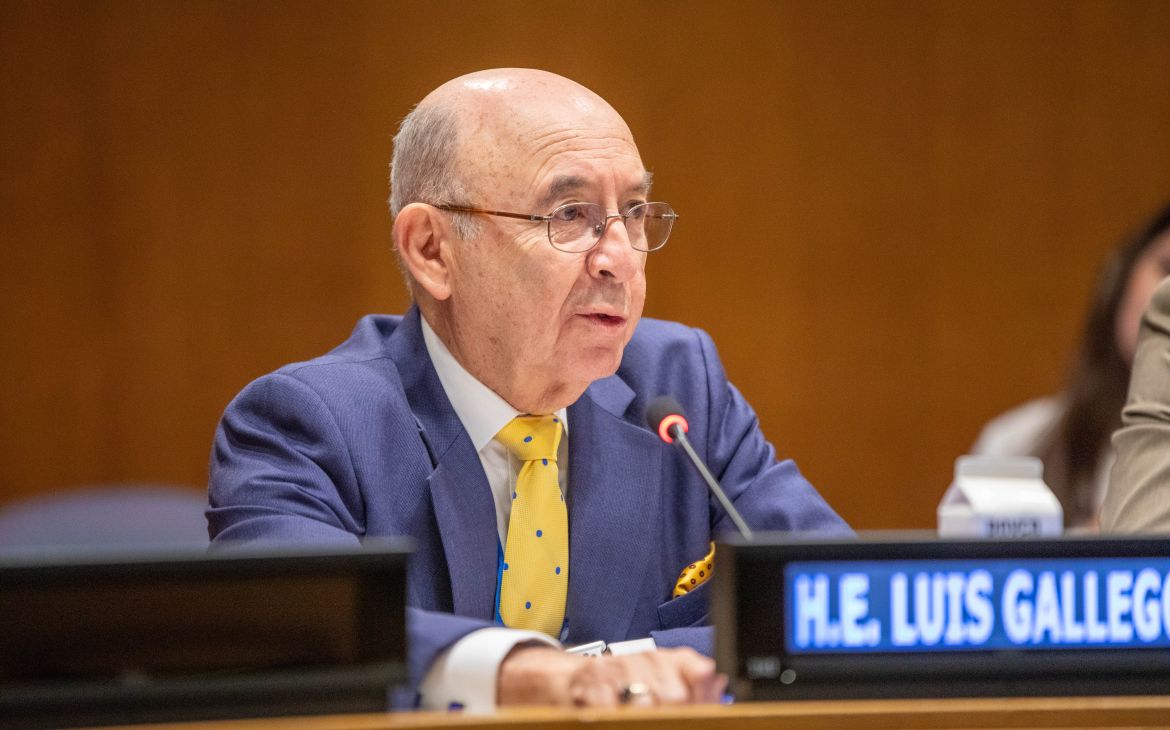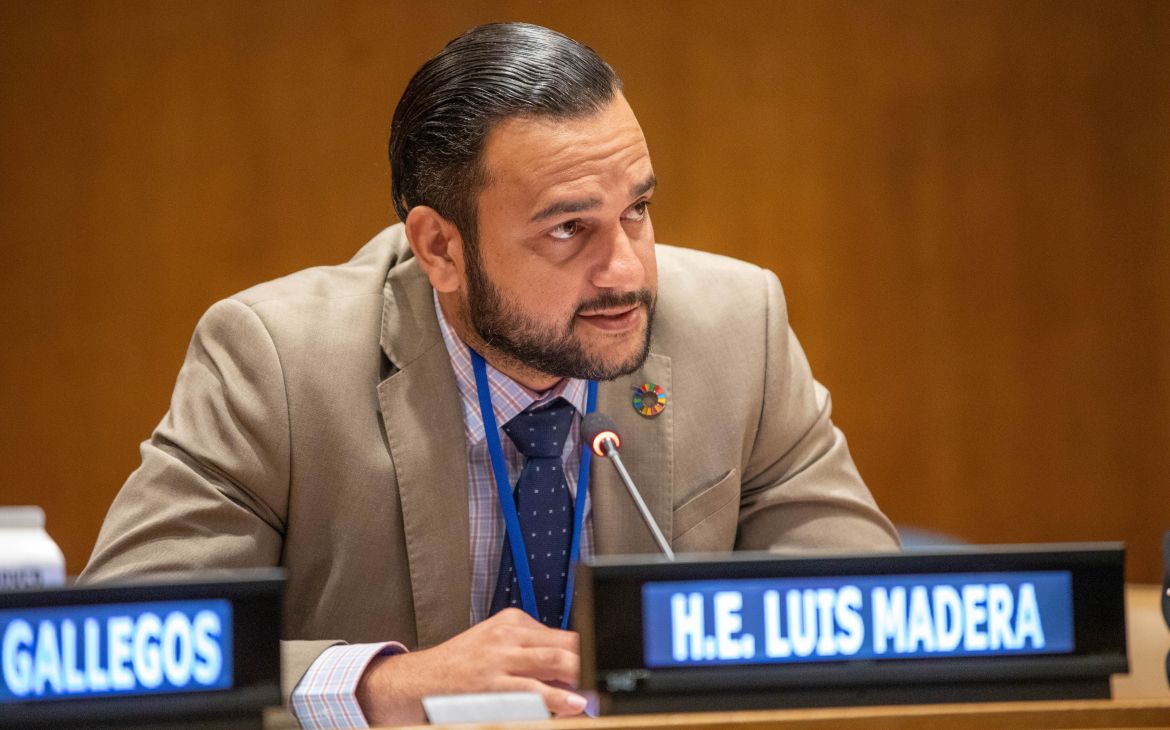15 July 2019, New York, USA – In the framework of the High-Level Political Forum 2019: Empowering People and Ensuring Inclusiveness and Equality, UNITAR launched an interactive e-learning Road Safety Toolkit that presents a practical management methodology to:
- Collect data on the number and location of deaths by road user type
- Identify hazardous and critical road locations and sections where excessive numbers or severity of crashes occur
- Outline corrective measures
- Implement interventions and monitor results
The Toolkit is based on the premise that achieving road safety targets requires, among others, improving existing road infrastructure for the benefit of all road users, especially the most vulnerable. It is based on a three-fold approach that provides practical solutions, participatory contributions from multi-stakeholders, and results-based interventions. It highlights local projects in which the methodology has been implemented and tested. Local demonstrations projects include cities like Sao Paulo and Brasilia in Brazil; Shanghai, China, Santo Domingo, Dominican Republic; Gurugram, India; Zacatecas, Mexico and Johannesburg, South Africa.
The WHO estimates that improving the 10% highest-risk roads in each country over 20 years, through the implementation of footpaths, safety barriers, bicycle lanes and paved shoulders, just to mention a few, has the potential to prevent around 3.6 million deaths and 40 million serious injuries (WHO, 2015).
The “Management Practices for Safer Roads Toolkit” features AB InBev’s methodology based on data and management routines. This toolkit aims to serve as a contribution to reduce the number of deaths and injuries by providing a practical methodology that helps to identify hazardous road locations and key infrastructure factors that influence risk, as well as to design corrective measures to improve safety, highlighted Carlos Brito, CEO of AB InBev.
During the Launch Event, Ms. Diana Chavez, Member of the Board of Trustees of UNITAR stressed the need for strengthening global partnerships to address critical issues like road safety. Mr. Alexandre Baldy, Secretary of State for Metropolitan Transportation of São Paulo, Mr. Oswaldo Caldera Murillo, Chief of the Road Safety State Police of Zacatecas in Mexico and Mr. Luis Madera, Director of Economic Analysis of the Ministry of Industry and Commerce of the Dominican Republic shared concrete examples on how the management methodology presented in the Toolkit is been implemented in their respective cities with successful outcomes.
Speakers from Brazil, Mexico and the Dominican Republic stressed the importance of making improvements in infrastructure planning, design and construction, including the provision of safe infrastructure for pedestrians and cyclists can reduce the risks that lead to road traffic injuries and fatalities. A lack of basic facilities such as footpaths, cycle paths, crosswalks, motorcycle lanes and safe speed-controlled crossing points on many roads, increases the level of risk for all road users.
Ambassador Luis Gallegos, Permanent Representative of Ecuador to the United Nations in New York closed the event by reflecting on the importance of multi-stakeholder collaboration to achieve road safety related targets.
For more information about the toolkit, please visit: www.un-roadsafety-learn.org/road-safety-toolkit/


